Plain Paratha Recipe
This simple plain paratha recipe shows you how to make Indian Paratha flatbread on the stovetop. This easy paratha dough recipe creates a paratha with just the basic ingredients of all-purpose flour (plain flour), salt, an egg, water and ghee.
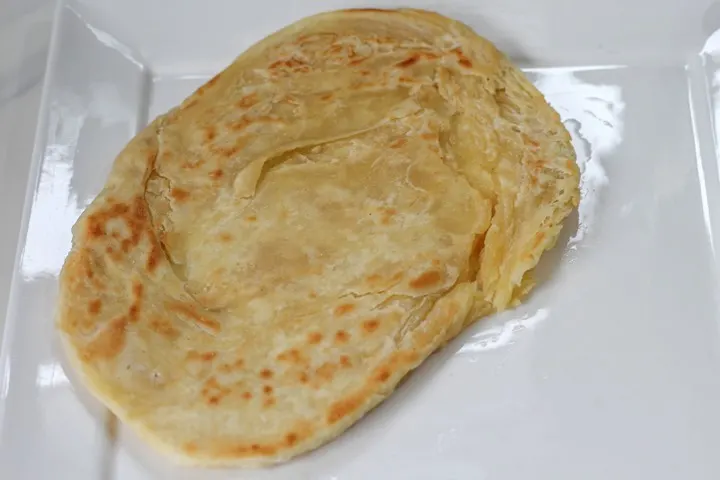
What are parathas?
Parathas are a very common type of unleavened flatbread used in Indian cuisine. The paratha has many different names such as: prontha, parontay, porota, palate, forota, parantha, parauntha to name but a few, depending on where you are.
There are many different varieties and they are normally based on whole wheat flour. There are plain versions and stuffed paratha versions and they can be eaten as a snack or accompaniment to a meal. Or even for breakfast.
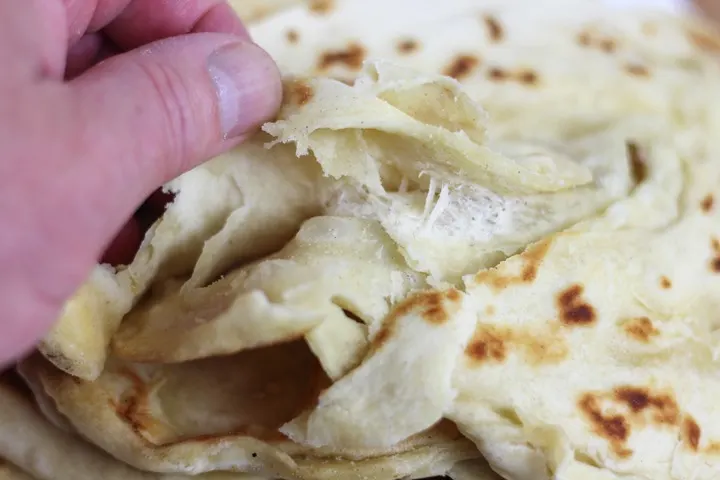
This recipe uses all-purpose plain flour which gives a wonderful tasty result.
Parathas are great for picking up food or for dipping in raita or pickle for example. This is one of my favourite Indian bread recipes.
Parathas may be served up in circular, triangular or even square format.
Paratha vs Naan bread
Parathas are different to naan bread in several ways. Firstly parathas are traditionally cooked on a tawa or tava (a flat frying pan) on the hob, whereas a naan is cooked in a tandoori oven.
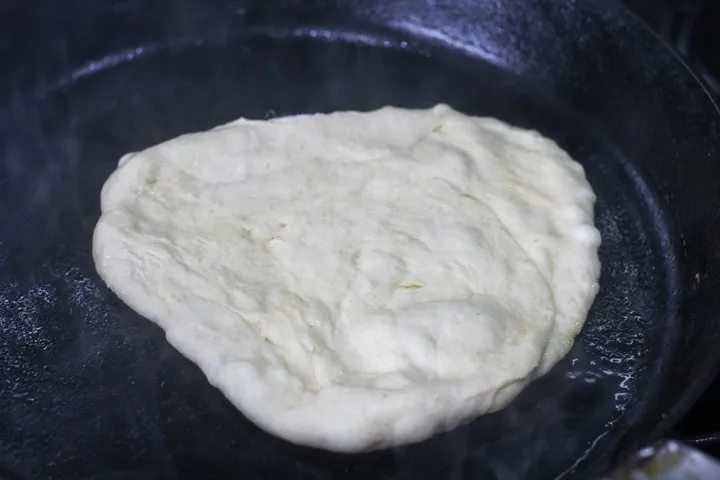
Also, parathas are often folded several times a bit like puff pastry to give a flaky bread. The folding is done so as to produce rings in the paratha. This makes it easy to pull apart so you can use it to pick up food or mop up sauce.
In comparison, you may find the naan a bit thicker as it is often made with yoghurt and yeast in the dough. They will both also behave differently if you decide to stuff them, because of the method of cooking.
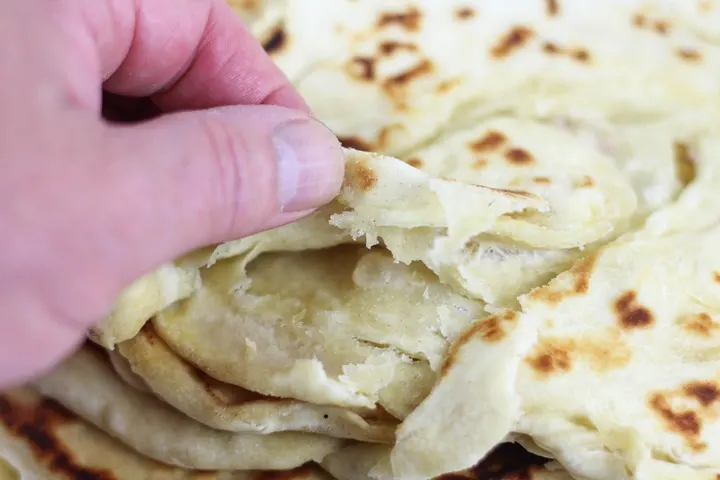
The cooking of a paratha does use a fair amount of ghee, I must say, so perhaps it is not as healthy as some other Indian flatbread like roti or chapatis.
But both flatbreads are delicious in their own right and really both should be tried. Serve them both up with your main course and see which goes first!
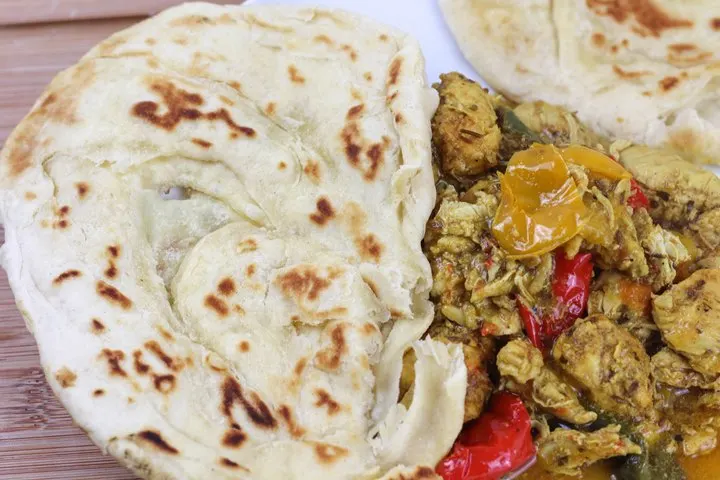
How to fold a paratha
There are several ways that you can fold a paratha to create a flatbread with lots of layers. I have tried a couple of them.
Luckily your folding technique does not have to be perfect to produce a tasty paratha (as proven by my pictures below!)
This is method 1 as described in the recipe card below:
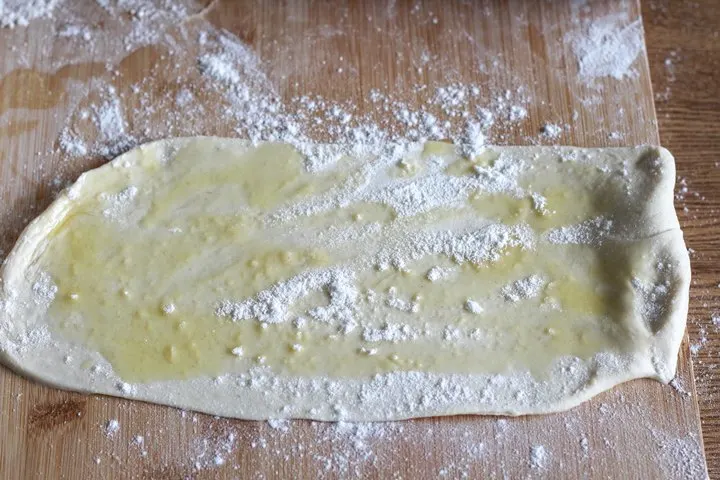
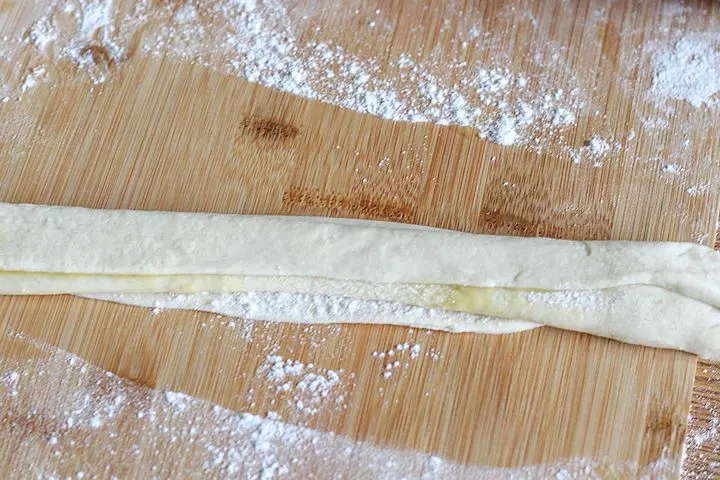
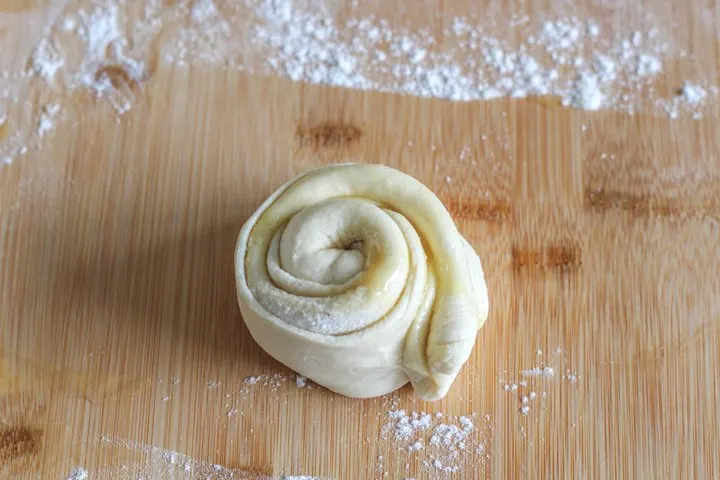
This is method 2.
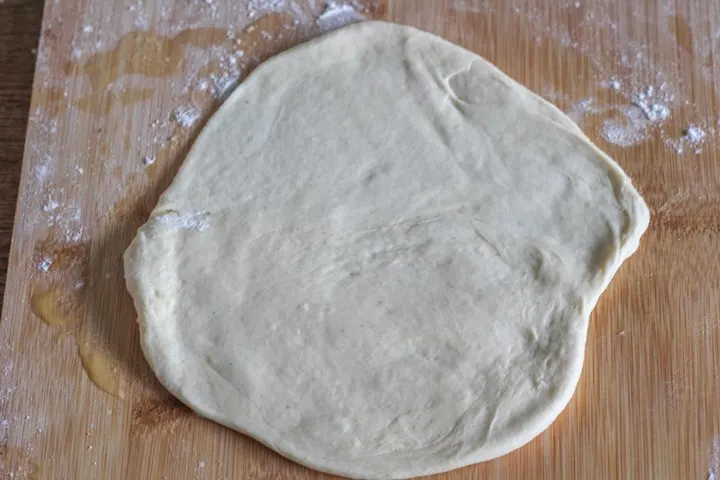
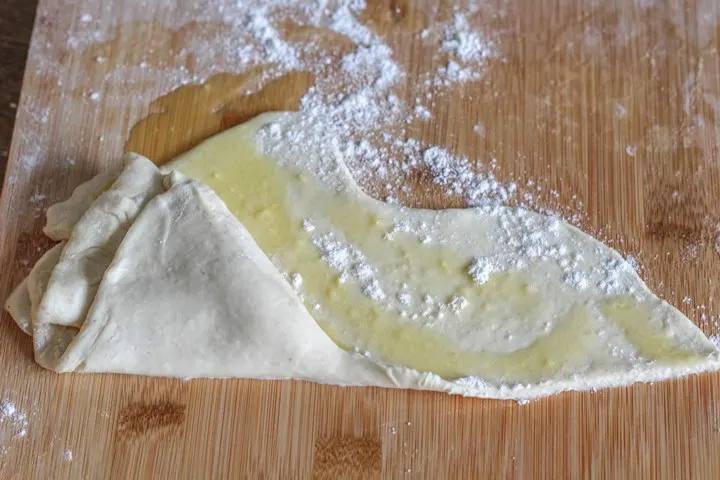
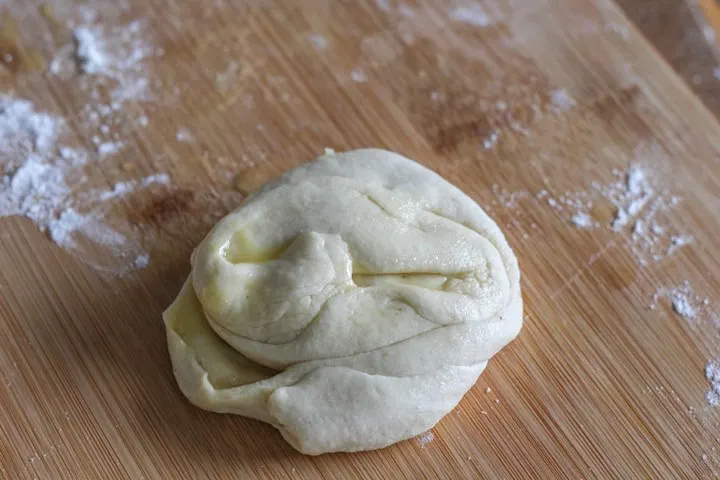
My apologies for the poor photos but my fingers were covered in Ghee when I took them. My folding technique clearly still needs some working on, even though this did seem to work!
I hope you get the idea.
We have found this paratha recipe to be a great accompaniment to my authentic Indian chicken curry and will be making it more often in the future as it is so easy to make. It is also quicker than my naan recipe, which I always made in the past to accompany this curry.
I hope you have fun trying this. If you do then please let me know how you get on in the comments section below!
How to make plain Paratha Bread
Save time producing tasty food for your family with Gav’s Weekly Meal Plan!
Just 19 US $!!
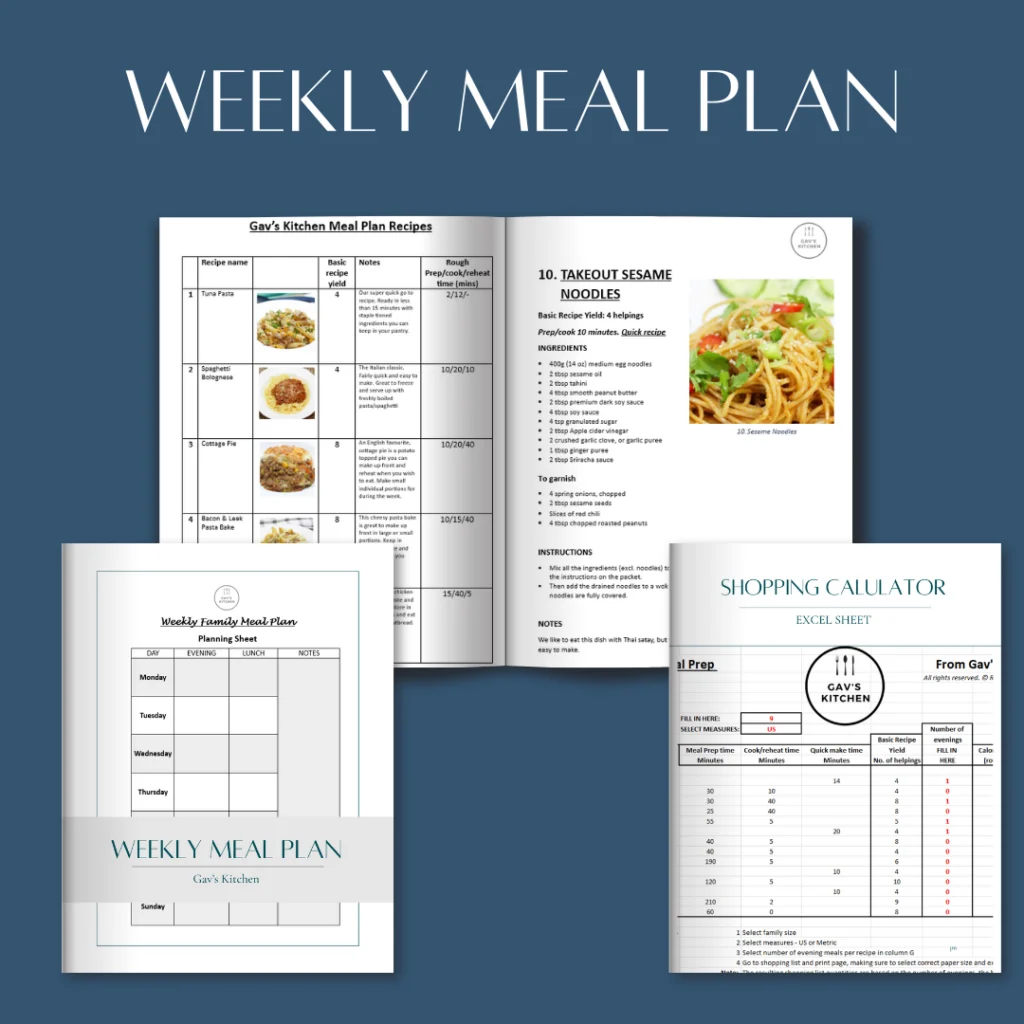
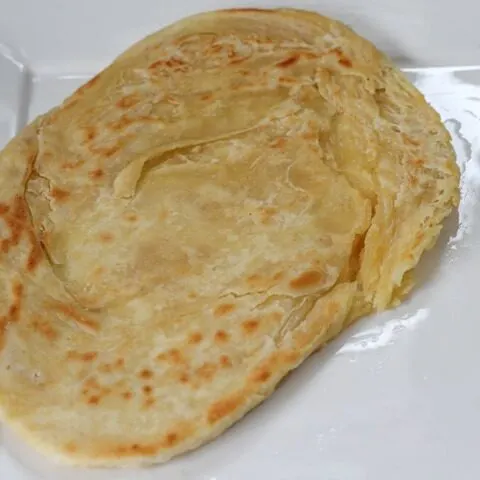
Plain Paratha
This plain paratha recipe makes 6 fairly large sized plain parathas which will melt in your mouth. The perfect accompaniment to an Indian curry.
Ingredients
- 450g plain flour (all purpose flour)
- 1,5 tsp salt
- 1 egg
- 230ml water
- Melted Ghee to baste and extra flour to sprinkle
Instructions
- Mix ingredients together well until you have a nice springy dough. Knead for a bit on a floured surface and form into a ball.
- Cover in a bowl or banneton and leave to rest for 30 minutes.
- Remove from the bowl and cut dough into 6 equal-sized pieces, and roll them into dough balls.
There are various ways to create the spiral form in the paratha. Here are two:
Folding Method 1
- On a lightly floured surface, roll out the dough ball into a rectangular shape. Brush the top with some melted ghee and flour.
- Then fold one of the long edges over itself continually in widths of about 15mm so you produce strip of dough like the shape of an accordion's bellows. Then roll this strip into a circle with a rolling pin. (See the pictures in blog post).
- Then roll this circle flat.
Folding Method 2
- Roll a dough ball into a circle. Brush with melted ghee and sprinkle with flour. Then make a cut from the centre to the outside.
- Begin then to fold the dough over on itself until you have a cone-shaped triangular piece of dough.
- Put the dough on its end and squash it. Then roll it out into a circle with a rolling pin.
Cooking
- Heat up a flat cast iron skillet to a high heat. Then brush the first dough circle with melted ghee and place in the skillet until brown spots appear. Baste the top with ghee and then turn over and cook the other side.
- The dough should brown in places during the cooking process.
- Repeat for the remaining dough balls.
Notes
Serve up immediately when hot.
Recommended Products
As an Amazon Associate and member of other affiliate programs, I earn from qualifying purchases.
Nutrition Information:
Yield: 6 Serving Size: 1Amount Per Serving: Calories: 379Total Fat: 4gSaturated Fat: 2gTrans Fat: 0gUnsaturated Fat: 2gCholesterol: 36mgSodium: 5829mgCarbohydrates: 73gFiber: 3gSugar: 0gProtein: 11g
This nutrition information was automatically calculated by Nutritionix, but may not be 100% accurate.
Or alternatively, try these bread recipes instead:
This would also taste good with a paratha:
Or to complement your meal, maybe an Indian appetizer?
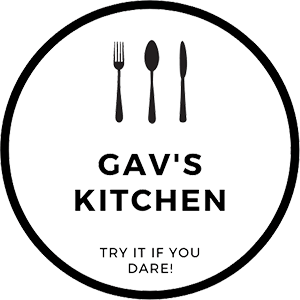
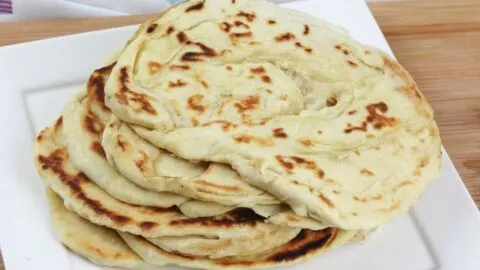

Bruce
Saturday 25th of May 2024
Easy to follow recipe. Minimal effort for an excellent result. So much easier than naan.
Gav
Monday 27th of May 2024
Bruce, thanks for your comment!
Dianne
Wednesday 4th of May 2022
Egg? Why egg? Never used egg in paratha before.
Gav
Wednesday 4th of May 2022
Try it. It works.